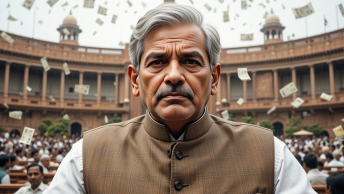“The Novartis Glivec saga took a rather strange twist at the Supreme Court, with Justice Markandey Katju recusing himself from hearing the matter.
As noted in a previous blog post, the Intellectual Property Appellate Board (IPAB) held, in what could only be termed as a flight of legal fancy, that since the price of Glivec was too high, it was against “public order” and therefore a patent ought not to be granted in favour of Novartis! It also ruled against Novartis on the grounds of violating section 3(d)–a ruling that may have been a sound one, but for the small quirk that it was also held, in the same breath, that the drug was “inventive”.
Naturally, Novartis appealed, hoping that the Supreme Court would, at the very least, rescue Indian patent jurisprudence from the hands of a flighty IPAB and secure it in more legally tenable moorings. Since the rejection by the IPAB is also based on section 3(d), and standards of determining efficacy are not terribly clear, it is well nigh impossible to predict which way the Supremes are likely to rule.
As the matter came up today, Justice Katju noted, with a poker face, that it may not be proper for him to sit in on this case. The rumour mill was soon set in motion, and a dozen theories soon emerged.
One such theory is that he authored a piece in the SCC Journal in 2004 that was critical of pharma patents and MNC’s. Titled “Intellectual Property Rights and the Challenges Faced by the Pharmaceutical Industry”, he took the reader through the basics of the Indian patent regime and then concluded by noting that:
“The concern of the developing countries, when they are opening their vast markets for international trade by adding safeguards against undue monopolistic exploitation of vital knowledge, techniques or life-saving drugs needs to be taken note of to draw up acceptable standards for protection of intellectual property rights and ensure fair international trade and commerce and bring about some sort of uniformity in this field for all the “convention” countries to follow.”
In other words, a balance has to be struck between the need to give monetary inducements to new inventions, and making available these inventions to the broad masses in the underdeveloped countries at affordable prices. At present it is felt that many of the medical drugs available in the market are too costly for the poor people in India. Ways and means should therefore be thought out for making these drugs available to the masses at affordable prices, while at the same time giving inducement to the inventors to continue their research.”
I cannot, for the life of me, fathom as to how such a view may be seen as reeking of bias against big pharma patents. In fact, the statements above appear to be quite tempered and balanced. Perhaps he was being overcautious–and if that is so, that will be a “first” for Justice Katju, who is known more for throwing caution to the wind. For those interested, see my article documenting a rather controversial statement, where he equated all bearded individuals with the Taliban.
What is perhaps most paradoxical about this issue is that despite strong allegations of bias, Mr S. Chandrasekharan, former head of the Indian patent office, refused to recuse himself as a member of the IPAB, during an appeal filed before it by Novartis against the rejection of the Glivec patent by the Indian patent office. Contrast this with the Honourable Katju who appears to be taking the “Justice must not only be done but seen to be done” aphorism to altogether new heights. Of course, all this assumes that Justice Katju was indeed recusing himself for his innocuous statements published in 2004. And not for some other reason.
Net result: The matter is likely to come up before another bench on Friday or Monday. One hopes that unlike the judges in Roche vs Cipla, the Supremes will not throw away this brilliant opportunity to clarify the scope and ambit of section 3(d), a section that appears to be severely creased.“
Pursuant to the post, an anonymous commentator wrote in to inform me that “…Justice Katju made some patently anti-patents comments during World IP Day. That may be the reason he recused himself.” I’m not sure what the content of his speech really was, but if it did reflect a view that was hostile to multinational pharma patents, the judge did the right thing by recusing himself.
Are there any decisions out there dealing with the issue of recusals, conflicts of interest, perceived bias and the like? Or leading cases that our readers are aware of where judges voluntary recused themselves or were forced to do so?







It is entirely possible that the Judges are discounting the true thrust of the law and are substituting the law with their values. It appears that manufacturers who infringe upon patents are generally winning battles in Indian courts as long as they demonstrate that their prices are affordable and within the reach of many.
Patent holders must show the appellate Courts that the judges below are making value judgments and so, enable appellate judges to consciously recognise such distinction in their own minds.
Any task of asking a judge to override his own set of values and to agree with the law in the area of life saving drugs must necessarily fail as long as patent holders end their arguments with a recital of the law – pretty much their strategy so far.
I expect patent holders will make efforts to explain to the Court on why costs are higher in relation to that of the infringer and, most importantly, to address the single largest question – 'how will a person deprived of a cheaper alternative afford the licensed drug'?
Much will depend on the patent holder's answer to this question.
Dear Shamnad,
This Comment of mine is only in respect to your concluding lines:
“…if it did reflect a view that was hostile to multinational pharma patents, the judge did the right thing by rescuing himself."
Even assuming Katju J., to be the biggest critic of the IP regime would not, I feel, be reason enough for him to rescue himself from the Novaratis Case. I am pretty sure he had a better reason than that. Untill and unless his comments on World IP Day were specific to the Novaratis case (which they possibly could not have been) I see no reason for him having to rescue himself.
For the matter of fact Justice Bhagwati's view on a subject like death penalty were always pretty clear; He was dead against it and in fact ,if I am not mistaken, he is said never to have handed down a capital sentence throughout his judicial career. Would you seem to suggest that he should have rescued himself from all cases that involved a question of say death penalty because seemingly he had already decided those cases even before he had heard them.
In my opinion, it would be a fallacy to consider judges as empty vessels carrying no opinion whatsoever. They obviously hold opinions (right or wrong) on every burning legal issues of the day, just like any one of us would be expected to. In fact now a days we even have a few of them bloging about thiers. Judges after all don’t live in Glass chambers.
So in my opinion it would be unreasonable to expect judges to rescue themselves from case in conflict with thier particular ideology. [If that be the case, Katju J., would henceforth have to rescue himself from almost all his cases, because he happens to be one of those judges who seem to hold an opinion on almost everything under the sun, sometimes even when it is unnecessary]. The only reasons for which they could be required to rescue themselves from a case would be where they comment on the merits of a particular case pending before them.
Reference in this regard may be made to two instances involving Justice Antonin Scalia [Associate Justice, US Supreme Court]. He had been asked by legal commentators to rescue himself from Hamdan v. Rumsfeld, 548 U.S. 557 (2006), after he had allegedly made improper comments about the decision of the case prior to hearing of the oral arguments. [“…I am not about to give this man who was captured in a war a full jury trial. I mean it's crazy”] In Hamdan the US Supreme Court was required to decide whether the military commission constituted by the US Government to try the detainees captured during the US-Afganistan War(?) were legal. Justice Scalia however refused to rescue himself from the case.
However before that he had rescued himself in himself from Elk Grove Unified School Dist. v. Newdow 542 U.S. 1 (2004) after having said in a speech that “judges who ban … the words ‘under God’ in the Pledge of Allegiance are misinterpreting the Constitution.” The Challenge in Newdon was to the inclusion of the words ‘under God’ in the Pledge of Allegiance to the United States.
The judges assets Case when it comes to the Supreme Court, [which it would sooner or later] would be a good illustration of a case where I believe the CJI atleast would have to resuce him self from bieng a part of the proceedings. [considering the innumerable statements that he has made about the merits of the case in the media]
Dear Dhananjay,
I think you've hit the nail on the head. A number of these cases rest on untested assumptions. Patents of course cause rises in prices. And consequently, one may argue that it causes a lack of access as well. However, the precise relation between patenting and lack of access hasnt been studied indepth. Lack of access is multifactorial –and unless we determine the extent to which patents impact such "access", we'll never be able to design an appropriate legal response. In other words, to what extent do we need to limit patent rights to promote access? Secondly, to what extent to cheaper generics actually solve the access issue? These are difficult policy issues, and as you rightly state, courts should be cautious while venturing out here and basing their analysis on their own intuitive assumptions.
Dear Chaitanya,
We're not sure what the exact comments were. But if the comments indicated that he was the biggest critic of the patent system, as you state, it is only fair that he recuse himself.
I am using "critic" or "hostile" in the sense that he thinks that no patents should be granted at all to pharma companies, owing to anticipated adverse ex post affects. Since the law does not provide for an ex post consideration whilst determining patentability (barring morality), but only requires that one look at the "technical merit" of an invention, the judges statement could be taken to indicate bias and partiality.
As for the US position that you mention, I'm sure you're aware that Section 455 of the United States Code, captioned "Disqualification of justice, judge, or magistrate judge," provides that a federal judge "shall disqualify himself in any proceeding in which his impartiality might reasonably be questioned."
The same section also provides that a judge is disqualified "where he has a personal bias or prejudice concerning a party…
Its clear that if Katju's statements are antithetical to MNC patents (irrespective of their "technical merit"), he would be found lacking in impartiality under 455 above.
You state: "The only reasons for which they could be required to rescue themselves from a case would be where they comment on the merits of a particular case pending before them."
I'm not sure I agree with you here. Most recusal rules are much broader and not limited only to comments relating to the merits of a case before them.
its